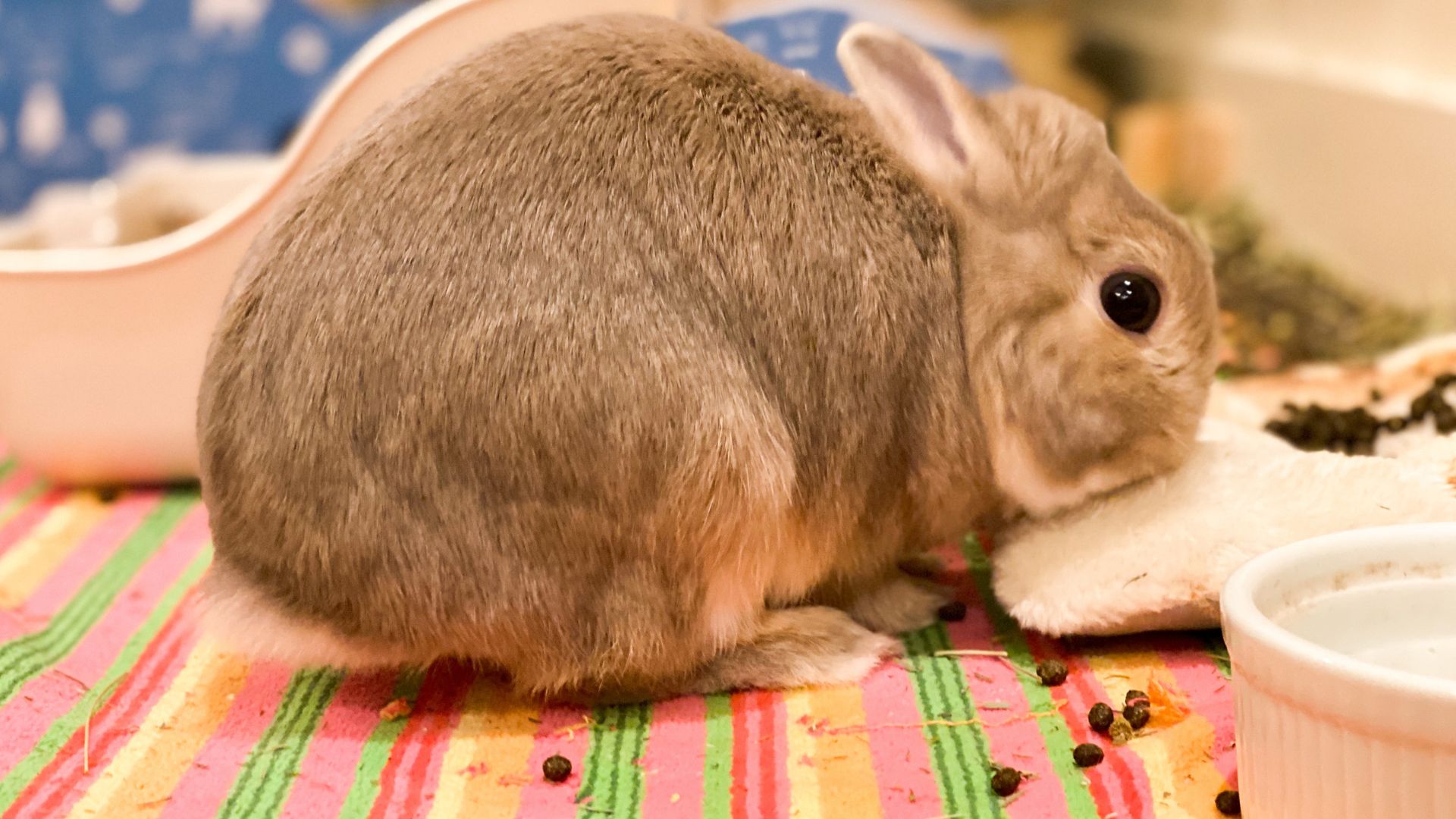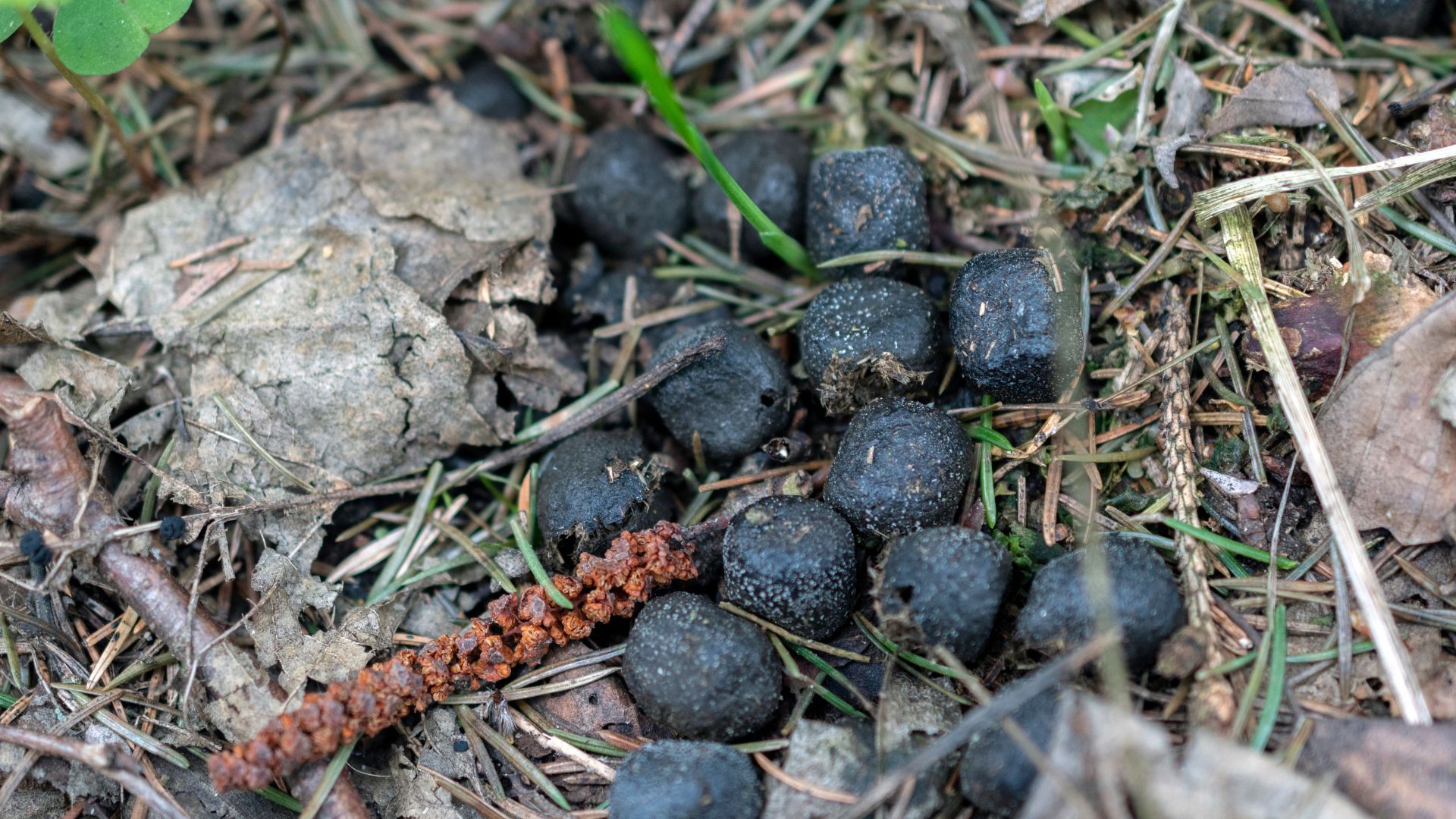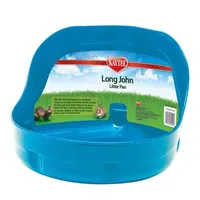Do rabbits eat their poop? What's normal and not
An expert answers, ‘Do rabbits eat their poop?’

Get the best advice, tips and top tech for your beloved Pets
You are now subscribed
Your newsletter sign-up was successful
Do rabbits eat their poop? If you’ve got a bunny, you might have noticed them doing this strange behavior and wondered if it’s normal. After all, it’s the last thing we humans would want to do.
Every day, a healthy rabbit will produce more than 300 round fecal poops, which is why it’s important to have the best rabbit litter box and know how to clean a rabbit cage – and even better, how to litter box train your rabbit.
There are two different types of bunny poop that you should know about; caecotrophs (which you don’t want) and fecal poop (which you do). Fecal poops are spherical and you should be able to crush one between your fingers. The color depends on what they’re eating and will be paler if they eat more hay and darker if they eat more grass.
If you want to learn why rabbits eat their poop, how often they do it, and the difference between these two types, keep on reading. Expert vet nurse Claire Speight has answered all your questions below:
Why do rabbits eat their poop?
The copious amounts of spherical fecal poops that are produced each day are the waste products and are not supposed to be eaten by the rabbits.
However, the caecotroph droppings, which look very different from the fecal poops, are rich in nutrients and essential vitamins and minerals. Caecotrophs look like brown raspberries and have a very pungent smell. They are sticky and soft, unlike the faecal poops that are produced.
All rabbits should eat their caecotroph droppings, so in fact you should never actually see them. If they aren’t being eaten, it could be due to one of several reasons, which we’ll explore below. To ensure they do eat their caecotroph droppings, making sure they have the right environment can really help.
Get the best advice, tips and top tech for your beloved Pets
When you think about housing rabbits, consider where to place their litter trays. Rabbits are clean animals and like to have designated areas with litter trays in which to pass urine and fecal poops. This helps to keep their environment clean and makes it easier to clean their enclosure.
Remember their enclosure needs to be at least 3m x 2m x 1m high and have lots of games for rabbits, including hides, tunnels, foraging and grazing opportunities, places to sleep, dig and run around; they should always have another rabbit as a companion. All these factors help to keep rabbits happy and healthy, and therefore more likely to continue eating their caecotrophs!
Here's what fecal poop looks like:

How often do rabbits eat their poop?
Rabbits eat their caecotrophs whenever they are passed. They eat them directly from their rectum so they never actually touch the ground. If you see your rabbits reaching round to their bottom area, and then chewing on something, chances are they are eating their caecotrophs!
Maybe you are thinking are rabbits nocturnal? And therefore do they eat them at night? Well, no, rabbits are crepuscular, so are most active at dawn and dusk, but will eat their caecotrophs throughout the day and night, particularly when they feel relaxed or when it’s quiet, which is often during the night.
Looking for a cheap rabbit litter box? This one has high sides to keep the poop contained and is odor and stain resistant. It’s super easy to clean and fits nicely in the corner of their hutch.
Why might rabbits not eat their poop?
If you see caecotrophs squashed on the floor of your rabbits’ enclosure, stuck to their feet or stuck around their tail and back end, you need to investigate why they are not being eaten. There are several possible reasons for this:
1. Incorrect diet
Rabbits who are overfed on pellets or muesli (muesli should not be fed to rabbits), and those who don’t eat enough hay/grass, often don’t eat their caecotrophs, as they are full or may produce too many of them.
When feeding rabbits it is important to make sure they are fed correctly and not overfed on even the best rabbit food, which should only make up 5% of their overall daily food allowance (1 level tablespoon per kilogram of ideal bodyweight, per day). Make sure they have a constant supply of fresh, good quality hay to eat, which should make up 85% of their diet, and a selection of fresh greens and herbs.
An incorrect diet often goes hand-in-hand with rabbits becoming overweight, which is another reason why rabbits don’t eat their caecotrophs, as they are unable to reach around to their bottom area to eat them.
2. Medical causes
If the rabbit has any spinal, hip, hind leg, neck or dental pain then it may be too painful for them to reach around to collect and eat the caecotrophs. Stress can also stop rabbits from consuming their caecotrophs, particularly if there are predators in their environment (more likely if rabbits are kept outdoors) or a lack of places to hide.
Rabbits that have caecotrophs stuck around their tail and back end are at risk of flystrike, so it is important to speak to your vet and ascertain the cause and address it, which may mean a change of diet, weight loss plan, diagnostics, such as x-rays, dental exam, or other vet treatment.
It is important that rabbits eat their caecotrophs, as without them their digestive system does not function properly, and other health problems may result. Make sure your rabbits’ environment allows them to safely eat them, and their diet is correct.
You might also enjoy reading: What do rabbits need in their cage? In this feature, we’ve created a complete checklist for you to follow. Or, to shop for the best rabbit toys, check out this buying guide.

Claire currently works in Kettering as a Head Nurse in a practice with a high rabbit caseload, as well as frequently lecturing and writing on rabbits to both veterinary professionals and owners.
Claire currently works in Kettering as a Head Nurse in a practice with a high rabbit caseload, as well as frequently lecturing and writing on rabbits to both veterinary professionals and owners.
- Megan MilsteadStaff Writer

